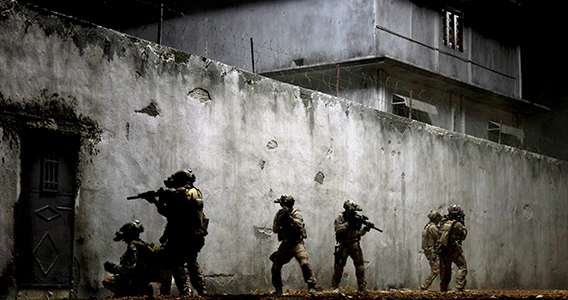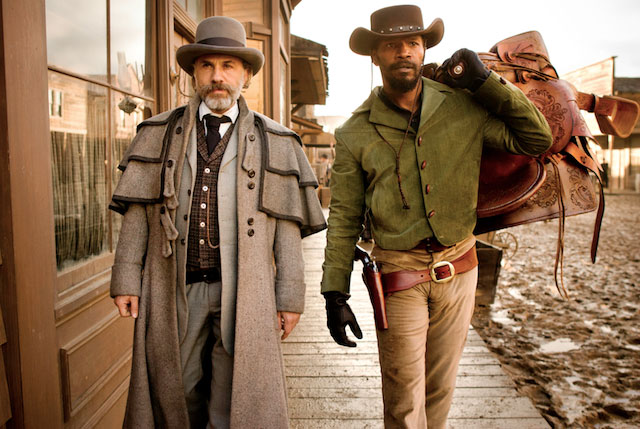My 30th “En Movimiento” column for Caiman Cuadernos de Cine, formerly known as the Spanish Cahiers du Cinema, written in late January, 2013. — J.R.
The debates about Kathryn Bigelow and Mark Boal’s Zero Dark Thirty in the United States have been substantial. Critical positions have ranged from Ignatiy Vishnevetsky’s measured defense at mubi.com/notebook/posts to Steve Coll’s attack in The New York Review of Books (to cite two of the less hysterical and more intelligent responses), and have only been exacerbated by the five Academy Award nominations the film has received. When I finally saw the film myself, it was apparent that part of the controversy derived from a certain ambiguity in the film’s depiction of torture, made all the more ambiguous by the filmmakers’ misleading and mainly unconvincing claims of political neutrality — a battle still being waged in the February issue of Sight and Sound, where Nick James, the editor of that English monthly, begs to differ with the negative judgments of two of his writers towards the film, even though he concedes that Bigelow’s naïve contention that “The film doesn’t have an agenda, and it doesn’t judge” has only helped to confuse matters.I agree with James that the climactic killing of Osama bin Laden registers largely as a hollow and morally dubious victory, but I also believe that the film’s commercially motivated attempt to be circumspect about its overall critical position makes it easy to misinterpret.
Another part of the problem, I would argue, stems from a poisonous climate that has avoided any detailed, serious discussion of the morality and/or the efficacy of torture until or unless it’s tied to the promotion of a high-profile commercial feature, when it suddenly becomes too important to ignore. As obscene as this unacknowledged policy is, it has arguably ruled the suppression of serious public discourse about a good many other important topics, and it’s important to add that the level of most discussions involving war in the U.S. already tend to be rather primitive. Referring to “good guys” and “bad guys” in international disputes may sound like the jargon and concepts of ten-year-old boys, but in fact these terms are used seriously and without irony by grown-up presidential candidates who are treated by the media as wise, mature, and sophisticated.
The consequence of de facto censorship of serious discussions about torture in the public sphere tends to be confused, overheated, and often incoherent discussions that emerge later, as if to compensate for all the preceding silence. And to some extent, the same absurd situation applies to the discussions of slavery in the 19th century that have been recently been inspired by Django Unchained. Because the object for sale in this case is Tarantino’s film and not Richard Fleischer’s 1975 Mandingo (one of its principal sources), there has been a tendency in the media to dismiss the earlier and far more substantial film as trash, even though the principal (indeed, sometimes the only) historical question discussed in reviews is whether or not “Mandingo fighting” — fatal Roman-style combats between slaves — actually existed.
Meanwhile, such basic questions as how a slave could become an expert marksman, learn how to read, or wear sunglasses get overlooked, and there’s an amusing tendency among some of the partisans of Django Unchained, including Tarantino himself, to oscillate repeatedly between the alibi of “it’s only a movie” to the confident and contradictory claim that this movie offers important moral instruction regarding the evils of slavery, thereby justifying the latest version of Tarantino’s obsession with revenge fantasies. For those like myself who consider these simplistic and tribal revenge fantasies to be “good guy”/”bad guy” video games for ten-year-old boys — given a second life since the 1970s by the Star Wars films and ultimately encouraging such actions as the invasion and occupation of Iraq — the pre-eminence of action movies over any independent discussion of their subjects is a frightening phenomenon.




